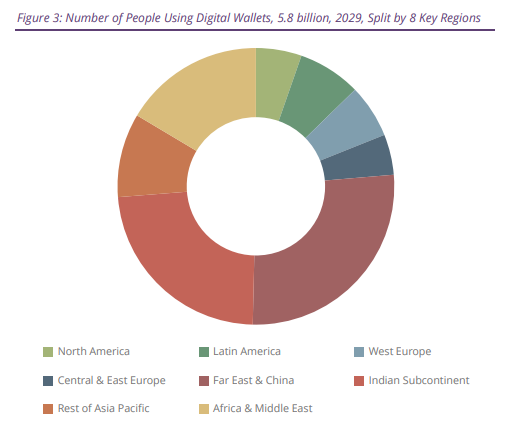Software testing is essential before final rolling out of the IT system for ensuring quality and security. All IT services companies provide testing services to global clients. Global testing outsourcing market is pegged at around $55 billion. Apart from IT services companies, there are many pure-play testing services providers in the IT industry. QualiZeal is one of the leading players in the testing space with a marquee client list. In a conversation with the Bizz Buzz, Madhu Murty Ronanki, Co-Founder & Head of India Operations, QualiZeal said that the company has grown multi-fold in the last three years and is aiming to be a $100 million revenue company by 2027. With its key delivery centres in Hyderabad, the company has more than 800 employees as of now and is planning to add around 500 employees next year. With advent of GenAI, though the automation portion has increased in the testing space, the company feels that GenAI will provide further boost to demand for testing services
Can you provide a brief overview about the operations of QualiZeal?
We are an IT services company, specialising in software testing and quality engineering. We started this company around three and half years back. Right now, we have around 850 people globally with 100-120 employees working in the US and rest working in India. WE provide a variety of testing services like functional testing, performance testing, security testing, AI-driven testing, and automation to our clients. Currently, our customer base is in the North America. We are serving clients in the health & life sciences industry, tourism and travel; insurance, and fintech companies. We also serve many software technology companies like companies, which are developing software products.
Which is the biggest vertical for your company in terms of revenue? Can you provide a brief overview on this aspect?
Our biggest vertical is travel and tourism, followed by healthcare & life sciences and then insurance.
How is the testing market evolving as of now in the light of rising automation being done through artificial intelligence (AI) and Generative AI? Can you throw some light in this regard?
Testing market globally is growing. Global analyst firms are predicting good growth of this testing market in the coming years. Global testing outsourcing market is pegged at around $55 billion. With the advent of Gen AI, the expectation is that many firms will be able to do testing effectively, using AI. Global consultancy firm like Everest has predicted that overall testing market may see a drop in 2025 due to GenAI. However, there is also an upside for the quality engineering business. There are many new systems getting created or current systems are being modernised using GenAI. Companies are providing much better services to their customers using generative AI in the current software system. That means the new system has to be tested a lot. And the new systems are totally different from old systems. So, the test strategies have to be different. Testing types, kind of people required for this testing and testing techniques are undergoing a lot of changes. The upside is whichever player has deep expertise in these matters, it will cash in the new demand. Because Everest is saying that testing work will see a surge beyond 2025 and outsourcing testing market will grow.
Have you started leveraging GenAI in the testing services that you provide to clients as of now?
Yes, we have started leveraging GenAI. We have Centre of Excellence organisations. These provide innovative support to organisations for future growth. So, we have created Centre of Excellence for GenAI. We have already started building platforms that will help engineering professionals like managers, architects, and others to undertake their work more productively. We are also releasing some products also in this space. Internally, we are already leveraging those tools to provide services more effectively.
Do you have expertise in any particular area of testing? Can you provide some views on this aspect?
We are a testing specialist. We have deep expertise across the spectrum. When we compete for deals in the market place, we actually compete with world’s best and the biggest. In this kind of competitive environment, we win deals. We say that while big companies are ‘testing also’ companies, we are ‘testing only’ services companies. Now a days, all businesses have IT in the cloud. So, whatever we do, we have to be cloud-ready testing services provider. Domain knowledge is extremely important in the testing services. We are also good at testing automation. For any cloud system, security is a big concern. We are very good at security testing. So, in all aspects of testing, we have projects and we are investing to build our capabilities. We are also building our domain capabilities.
What are typical deal sizes in the testing space? Can you provide some views about your customer base?
The big IT firms win testing deals in the range of $50 million to $100 million. For small players, deal sizes come in the range of $5 million to $10 million. These are multi-year contracts.
As far as customer base is concerned, we now have around 70 customers. More than half of these customers belong to Fortune 2000 category. We are a US-focussed company. Our cofounding team is located in the US. Right now, we are focussing on the US market. We will try to diversify in Europe and other geographies after a good standing in our present markets.
Please throw some light into your team size. Are you planning to hire more people in the coming years?
We have around 830 people out of which around 700 people are in India and the rest are working on the onsite locations. We want to be $100 million company in the next three years (by 2027). Next year, we may add around 500-600 people. To reach our primary vision of reaching $100 million, our team size will be around 2,500 people. As far as current revenue is concerned, we are currently a $35 million revenue run rate company. Next year, we plan to reach around $44 million. We have already crossed quarterly run rate of more than $10 million.
Can you provide some views on the operating margin in the testing side?
There is not much difference between margins of development and testing spaces. Rather, margins are better in the testing services. Generally, margins are better in the testing side due to lower cost of talent. Though the talent cost is growing fast, but there is still some difference. Large companies have a portfolio of $1 billion or so, coming from testing services. So, the margins are sound in the testing side.
What are the key risks that the testing business may face in the coming years?
GenAI poses both risk and opportunity. Businesses will keep on modifying their IT and every time, there is a need of testing. Otherwise, there is a risk of bad quality going to the end user. Due to advent of GenAI, we have to see how the traditional headcount-based model evolves. Apart from this, like every other IT services company, testing space also has to adjust with the macroeconomic fluctuations.

